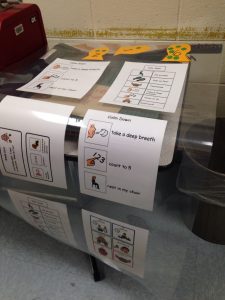I recently talked with a preschool special education teacher. Kids who need extra help often start public school at the age of three. “Maria” had been placed in special education in the public school system. Her teacher loved her. She was a sweet kid, a kid who did not seem slow as much as English-challenged.
Her teacher had not tried to remove her from special education, despite a strong suspicion that Maria’s learning problems resulted from the fact that English was her second language. No services for English as a Second Language existed for children under five within her district. If Maria went home, she would be immersed in Spanish, and the teacher believed academic work in English would benefit Maria.
As a former bilingual teacher, I discussed the issue that leapt out at me. What if Maria ended up stuck in special education? I believe many placement mistakes have been made on both sides of this equation. Distinguishing between language and cognitive issues can be tough — especially if the evaluator(s) don’t fluently speak the language of the child being tested. Once tracked, students can’t always easily step off those tracks.
Eduhonesty: Why can’t Maria talk? Why has Maria fallen behind? Students learning a second language often go through a silent period when they are afraid to talk for fear of making embarrassing mistakes. That silence can easily be mistaken for lack of comprehension. Conversely, a lack of comprehension may be confused with inability to speak English.
What interested me most was the rescue underway. Since no bilingual services existed, the teacher decided that special education should be used to help Maria. I suspect Maria may have gotten lucky. Her teacher claims their district aggressively attempts to exit students from special education.
But then I think of students from my own past, slow learners spending years and years in bilingual programs that may have been mistaken placements. When a child can never pass the English-language exit test used now in most of the country, we ought to quickly consider the possibility that that child’s academic problems do not stem from language confusion. I have seen students spend their whole lives in bilingual programs. That’s both abusive and absurd.
Maria’s teacher is working around the system. I hope her efforts benefit Maria. I wish the system worked more cleanly and efficiently for our Marias. Maria may have been misplaced. If so, she lucked into a fine teacher to help prepare her for elementary school.
I just hope Maria gets exited out of special education quickly if special education proves not to be where she belongs.

